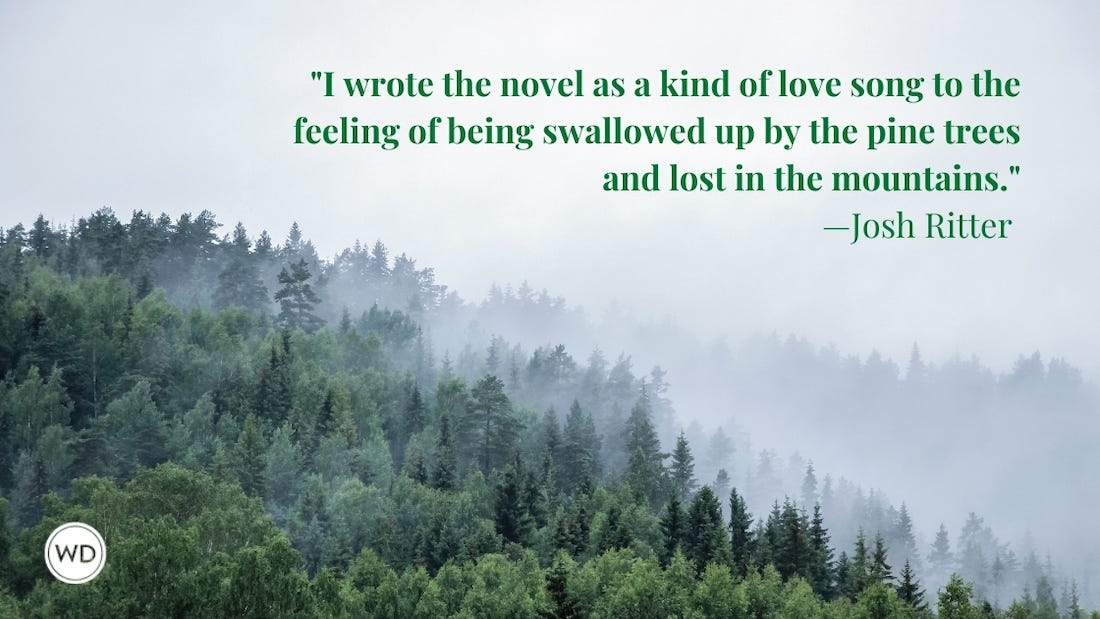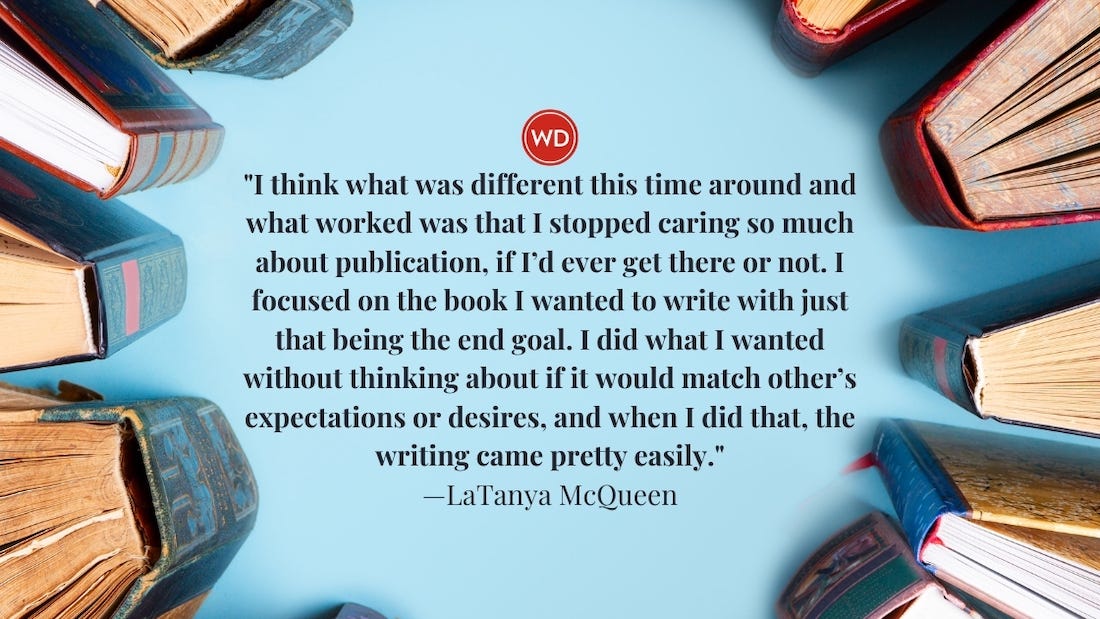Dave Eggers Helps Sudanese Village With Novel
Telling the tale of a Sudanese refugee’s life in novel form gave literary darling Dave Eggers the challenge of a lifetime.
"Hey, we're pulling up in front of my old house," Dave Eggers says minutes into our phone interview. "Do you mind? I want to show Valentino where I grew up." Eggers and his companion, Valentino Achak Deng, are on the road, making their way from Milwaukee to Chicago. They're scheduled to give a reading of Eggers' new novel, What Is the What, which is based on the true story of Deng and other Sudanese refugees, or Lost Boys, who as young children were separated from their parents and then walked across war-ravaged Sudan to refuge in Ethiopia and Kenya.
"I took a little detour," Eggers says. "I always stop by when I'm in town. But they tore down the houses on either side of us. They tore down the ranch houses and put up these big houses."
"You grew up there?" Deng asks.
"Yes, that's where I grew up," Eggers says. But his childhood home isn't the only thing that's changed. Eggers himself has come a long way from his suburban Chicago youth.
Nearly seven years after Eggers' debut book, A Heartbreaking Work of Staggering Genius, he's hardly the self-obsessed, immature writer critics once labeled him. When Eggers isn't touring to promote his book, which he hopes will raise awareness of the dire living conditions in Sudan, he's the editor of San Francisco-based McSweeney's, a quarterly literary journal and book publisher. Eggers is the co-founder of 826 Valencia, one of a network of nonprofit writing and tutoring centers dedicated to helping young writers. He's working on the Voice of Witness series: oral testimonies about contemporary human crises, which grew out of a journalism class he taught at UC Berkeley in 2004. And he's also a husband and a father of a 2-year-old. Hardly the schedule of a self-involved writer.
Eggers opted to publish What Is the What through McSweeney's so the profits could be directed to the Valentino Achak Deng Foundation, which he and Deng established to help rebuild Deng's devastated Sudanese village, Marial Bai.
When asked how he's able to do it all, he's modest and philosophical: "I just know that for me, I did spend some years alone, writing and not doing much else. I was really not interacting with too many people, and I went a little loony. I wasn't anchored to anything. Nobody was counting on me for anything. All I thought about was my work—my brilliant thoughts and whatever. And after a while, I really needed to be needed. I needed to have daily responsibilities and more interactions with people."
Crossing Paths
"I just set out to finish it," Eggers says about the critically acclaimed, bestselling novel What Is the What. "I'm almost always wrong about how things will do. I know enough to let it ride and see what's going to happen. I know it's not up to me. It's up to the readers."
And Eggers admits he couldn't have written the book without his passenger on this trip, Deng, who's come a long way, as well. In fact, Deng's nickname in the refugee camp is Gone Far, because as a boy, Deng had walked one of the farthest distances—nearly 1,000 miles.
Though both men's life journeys are inspiring, their latest journey as friends and collaborators on What Is the What also inspires. Eggers' and Deng's paths crossed four years ago, when Mary Williams, Jane Fonda's daughter and founder of the now defunct Lost Boys Foundation, introduced the two. Williams formed the foundation to make sure the Lost Boysby then, young Sudanese menfound jobs, apartments, and mentors who could support and guide them in their new American lives. Having read about Eggerswho lost both of his parents as a teenager—Williams sought Eggers out as a mentor who could help Deng write about the life he and his friends had endured in Sudan.
Speaking in broken English, Deng explained why it became so important to get his memories on paper: "It would be a disservice to the Sudanese who deserve to have their stories shared, even if it is in the form of my life as a microcosm of theirs. I believe that the more people who know about [what happened in] Sudan in the 1980s and what's happening in Darfur, Sudan, now, the more I'll feel my life has a purpose."
Deng recalls first meeting Eggers and explaining his desire to write a book. "I remember that when Dave came to Atlanta, I said to him, 'I know I have limited English words. If there is any way you can understand my feelings and how I'm telling the story it's fine. The best way you can tell the story is all I want.' "
Eggers agreed to help. At first the plan was for Deng to record his story orally, prompted by Eggers' questions, and then Eggers would work the interview into a nonfiction narrative. But after hundreds of hours of taped conversations, Eggers was coming up empty on how to write it. "I have to say, it was just an unhappy time for about a year and half, while trying to figure out how to tell this well and how to tell it correctly," he says.
The main problem was that the number of Lost Boys involved, and their unfamiliar African names, made it difficult for Eggers to thread a seamless narrative. Also, Deng, who was only 6 years old when his village was invaded, couldn't clearly recall conversations, names or locations. Eggers knew he'd have to recreate all of this. "My degree is in journalism from the University of Illinois, and it has a fantastic journalism school. The teachers were pretty much fire and brimstone about the line between fact and fiction, and I never forgot it," he says. "I really take a hard line about what's fact."
The pressure Eggers put on himself was stifling. "I wanted people to be engaged and not read it like a policy book or a dry piece of nonfiction," he says. "Everything I tried ended up being very dry and fact-filled—I couldn't use quotes, and I couldn't have conversations, and language was very limited, because it all had to be factual. I couldn't take any liberties. I was a real stickler about it, and it was crippling to the point that I was ready to give up. And knowing that I'd given it up somehow unleashed and shook out some things in my brain, and suddenly it came to me: Oh my God. Every story we remember about war, about evil, is a novel. Every story that we remember is a novel. Novels make things more universal."
Once Eggers decided he wanted to make Deng's story fiction, he grew anxious about Deng's reaction. "I put off e-mailing Valentino for a while, because I was worried he'd say, 'You can't change these things. You can't make them a novel. That's not right.' But I finally did write him and he said, 'Of course. Do what you want to do.' Valentino has always been incredibly understanding, and he has a deeply sophisticated sense of the artistic process—knowing that I had to tell his story, but I had to be a writer, too. He knew this was for an American audience, and it had to be told in an effective way. And when he gave me that freedom, it all opened up."
Once Eggers found the genre he felt comfortable in, he started to write and relied on Deng for constant feedback. After Eggers completed each chapter, he sent it to Deng for comment. Deng says that while reading the chapters, "There wasn't a single moment I found anything I didn't like. I asked Dave, 'How are you able to feel it?' "
Both men agree on the reason: It's because the two had come so far togetheras friends.
In the process of researching and writing the book, Deng and Eggers snuck into Sudan on a cargo plane. "There weren't any commercial flights at the time, and technically the war was still on, and you couldn't drive in," Eggers says. "There are no roads into Southern Sudan. So it would take many months to drive to where we were going. It was an adventure."
The journey, it turns out, was more than just a research trip. Deng reunited with his mother and father after a 16-year separation. Eggers witnessed the emotional reunion. And together, Deng and Eggers saw the carnage, devastation and suffering the war caused Deng's family and village. More important, Eggers saw how deeply the experience affected his friend, and he realized the enormity of his own responsibility to tell the story correctly.
A Shared Mission
"I don't believe I'm among the Sudanese who have suffered the worst," Deng says. "I was separated from my family, and that was painful. I saw people dying, and I buried people and did a lot of things that a child should not do. But compared to other people in my life, I know I was lucky. And that's the reason why it's good to tell what happened in my life. I'm happy this book is out and that people will read about it. But they shouldn't think about only me but about the 2.5 million people who have died, the hundreds of people dying in Darfur now and others in the world who are exposed to many dangers. This will help us respond to world issues."
Eggers felt the responsibility to share in Deng's mission. "The whole way, year after year of writing, I kept thinking, I'm holding up the rebuilding of Marial Bai. Let me finish it. Let it make sense. It was really an obligation to Val after all he'd done and given me," Eggers says.
As our conversation comes to a close, Eggers' and Deng's road trip is over, as well, and they announce, "We're here already! We've arrived."
I couldn't have said it better myself. [WD]






